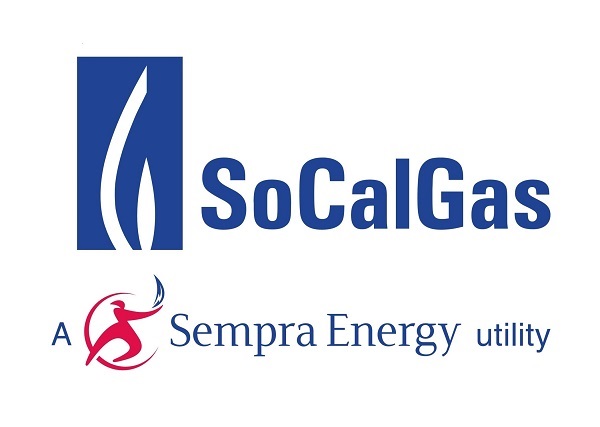Top U.S. Gas Utility Sets Net Zero Emissions Goal for 2045
(Reuters) — Southern California Gas Co (SoCalGas), the largest U.S. gas distribution utility, on Tuesday set a target to achieve net zero greenhouse gas emissions by 2045, aligning with the state's target to become carbon-neutral within 25 years.

The pledge is among a slew of promises made by U.S. companies to help fight climate change as the administration of President Joe Biden prepares new policies to set the nation's economy on a course to net-zero emissions.
Many of those pledges have been ill-defined or rely on technologies that are not yet commercially available. Net zero refers to a balance between emissions produced and those taken out of the atmosphere through technologies like carbon capture.
SoCalGas, a unit of Sempra Energy, said it expects to meet its goal in part by supplying its nearly 22 million customers increasingly with gas produced from organic waste and hydrogen. But it did not rule out the use of fossil fuels as part of its 2045 fuel mix.
"It is quite possible, and some might say likely, that there will be some level of natural gas in that broad energy portfolio," SoCalGas CEO Scott Drury said on a video call with reporters. "And there will be different ways to mitigate that."
The company said it would invest in still-nascent technologies that would capture and sequester carbon or use it in industrial applications.
Companies have come under increasing pressure from shareholders, governments and activists to show how they are changing their businesses to reduce emissions that contribute to global warming.
Gas utilities have felt particular pressure amid calls by environmental groups and progressive lawmakers to phase out the use of gas in transportation and buildings.
While natural gas burns cleaner than many other fossil fuels, it is a potent greenhouse gas prior to being combusted and has a tendency to escape into the atmosphere in significant quantities from leaky pipes and fittings.
SoCalGas has lobbied against efforts by dozens of California cities to reduce or eliminate the reliance on natural gas in new buildings. The company says its gas distribution infrastructure would be critical to energy reliability as more cars and home appliances are powered by electricity.
"The demand on the electric grid is going to go up, and the value of the pipeline infrastructure to support the variability in demand at increasingly higher levels of throughput is going to be very important," Drury said.
Related News
Related News

- Energy Transfer to Build $5.3 Billion Permian Gas Pipeline to Supply Southwest
- Enbridge Sees High Demand to Expand 593-Mile Canada-to-U.S. Gulf Oil Pipeline
- Strike Pioneers First-of-Its-Kind Pipe-in-Pipe Installation on Gulf Coast with Enbridge
- 208-Mile Mississippi-to-Alabama Gas Pipeline Moves Into FERC Review
- Chesapeake, AEP to Build $10 Million Ohio Gas Pipeline for Data-Center Power
- 275-Mile Texas-to-Oklahoma Gas Pipeline Enters Open Season
- Enbridge Sees High Demand to Expand 593-Mile Canada-to-U.S. Gulf Oil Pipeline
- LNG Canada Start-Up Fails to Lift Gas Prices Amid Supply Glut
- Strike Pioneers First-of-Its-Kind Pipe-in-Pipe Installation on Gulf Coast with Enbridge
- Trump Claims Japan, U.S. to Form Joint Venture for Alaska LNG Exports




Comments